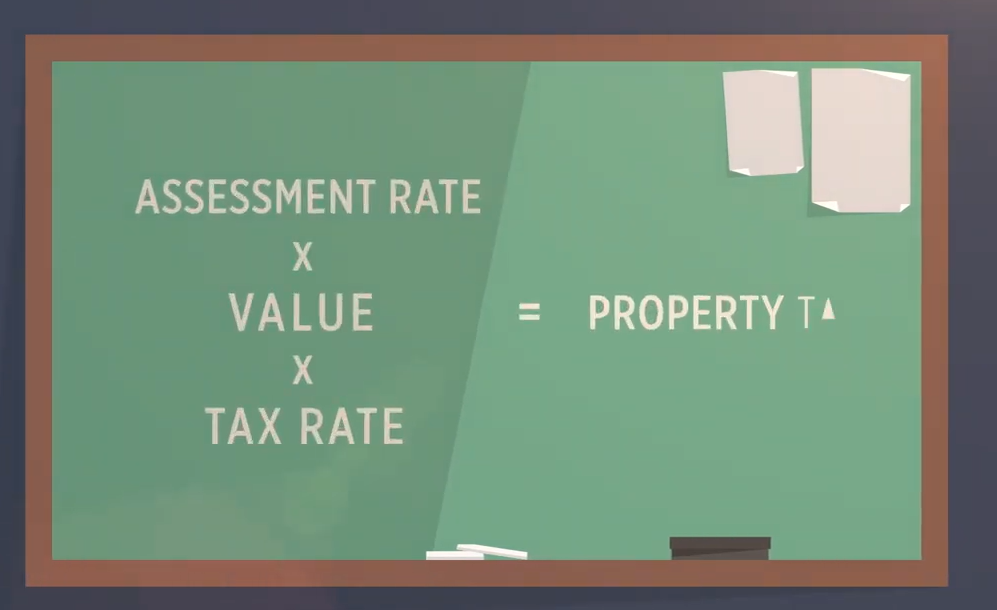At Windermere Whidbey Island, we are committed to providing our clients with valuable insights and information about the real estate market on Whidbey Island, Washington. One topic that frequently comes up in discussions with our clients is how property assessments and taxes work in Island County. To help clarify this complex process, we recently had a presentation by Jason Joiner from People’s Bank, who previously served as the Deputy Assessor at Island County. His expertise has equipped us with the knowledge to better serve our clients, and we are excited to share these insights with you so that you can have an understanding of property assessments and taxes in Island County.
The Basics of Property Assessments and Taxes
In Washington State, property taxes are determined through a budget-based system rather than a rate-based system. Understanding this distinction is crucial for comprehending how property taxes are calculated in Island County. In a budget-based system, the county sets its annual budget, and property owners contribute a portion of that budget based on the assessed value of their property. This means that the total property tax collected is determined by the budget, not the property tax rate.
For a more detailed explanation, we recommend watching this YouTube video that breaks down the basics of property assessments and their connection to taxes.
Lid Lifts and Property Tax Increases
Washington State law restricts property tax increases to 1% per year. However, it is sometimes necessary to raise the baseline beyond this limit to keep up with rising costs and inflation. This process is known as a “lid lift,” which requires voter approval. Essentially, voters may be asked every few years to approve a lid lift to ensure the county can continue to meet its budgetary needs without falling behind due to inflation.
Property Tax Rates in Island County
One of the benefits of living in Island County is our relatively low property tax rates compared to other areas in the state. This advantage is significant for property owners and is an important consideration for those looking to move to the area.
The Assessment Process
Island County is divided into six appraisal areas. Each year, county assessors are required to physically inspect one of these areas. The remaining areas are adjusted based on a conservative market-based increase. This method, known as the “catch up method,” means that property owners will typically see a more noticeable increase in their property value during the year their area is physically inspected.
This approach ensures that property values remain accurate and reflect any significant changes in the market or the property itself. However, it also means that property owners should be prepared for potential fluctuations in their assessed value from year to year.
Preparing for Potential Property Tax Increases
When purchasing a property, it is essential to budget for potential property tax increases, especially if the purchase price is significantly higher than the current assessed value. A good rule of thumb is to budget about 1% of the purchase price for property taxes. This conservative estimate helps ensure that buyers are not caught off guard by a substantial tax increase after their purchase.
The Role of Permits in Property Assessments
The Island County Planning Department provides a list of permits to the assessor’s office, which uses this information to adjust assessed values as needed. For example, a permit for a hot water heater replacement might not affect the assessed value, but a permit for a new kitchen would likely lead to an upward adjustment.
It is important to note that assessors conducting physical inspections are not reporting unpermitted improvements to the planning department. This means that while unpermitted improvements may eventually be discovered and assessed, the assessors themselves do not report these findings.
Appealing Your Property Assessment
If you disagree with your property assessment, you have the right to appeal. When you receive your assessment notice in June, you have 30 days from the date on the letter to file an appeal with the Board of Equalization. The instructions for filing an appeal are provided on the back of the notice. This process allows property owners to present their case and potentially receive a revised assessment.
Understanding the Workload of Assessors
It is worth noting that private sector appraisers typically charge around $800 per appraisal, while the Island County Assessor’s office receives about $23 per assessment. Despite this significant difference in compensation, the public often expects the same level of service and accuracy from county assessors. This disparity highlights the challenges faced by public sector assessors in maintaining high standards of service with limited resources.
Final Thoughts
Understanding the intricacies of property assessments and taxes in Island County can be daunting, but it is an essential aspect of property ownership. By familiarizing yourself with the process, you can better navigate your financial responsibilities and make informed decisions about your property investments.
At Windermere Whidbey Island, we are dedicated to guiding and educating our clients on all aspects of property ownership. Whether you are considering buying a new home, appealing your property assessment, or simply want to learn more about how property taxes work, we are here to help. Please feel free to reach out with any questions or concerns you may have. Let’s work together to make your real estate journey as smooth and informed as possible.
Windermere Whidbey Island is here to assist you every step of the way. If you are not currently working with a realtor and would like to, connect with us here.

 Facebook
Facebook
 X
X
 Pinterest
Pinterest
 Copy Link
Copy Link
